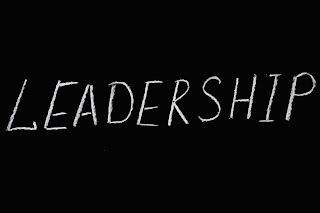Leadership values underpin the decisions and actions you make each day. Executive Coaching can help you identify these values and apply them to your decision making. My top five values to improve performance are;
Vision and Innovation
Good leaders have vision in which they see the future more clearly than others, and before others. Business leaders should continually generate new ideas and explore ways to grow their business, a process that requires innovative thinking. According to HBR innovation gives businesses an edge, helping them penetrate markets faster, enabling business growth.
Making innovation a shared belief has to go far beyond appointing an innovation lead or developing an innovation dashboard. It requires thinking about innovation in everything you do. It requires not accepting mediocrity and making sure that every offering, big or small enhances a customer experience in a meaningful way.
Authenticity
Authenticity is essential in creating employee loyalty, and true integrity comes across in honest communication. Leaders who communicate effectively by having focus in their actions, listening to others and being open to feedback excel at being great leaders. Making sure your business has good communication, modelled by you, will improve team working and team dynamics, help generate new ideas and improve business performance.
Our growing dissatisfaction with sleek, ersatz, airbrushed leadership is what makes authenticity such a desirable quality in today’s corporations—a quality that, unfortunately, is in short supply. Leaders and followers both associate authenticity with sincerity, honesty, and integrity. It’s the real thing—the attribute that uniquely defines great leaders.
Collaboration
Business leaders should aspire to develop team dynamics and create a culture of collaboration. I’ve found that team synergy is critical to transforming performance. Gaining a consensus from your team when making decisions ensures that all employees are working together to achieve a shared goal; creating extra drive and motivation.
Workplaces are embracing the collaborative leadership model now more than ever before—and with good reason. Access to digital collaboration tools, a shift in the view of employees as assets across multiple functional areas, and the use of big data in decision-making have all led to an increase in the use of collaborative teams across industries.
Integrity
The millennial generation want to work for businesses who focus more on people and less on profits. Focusing on integrity when carrying out your strategic planning will help you to engage your employees and create true belief in your business.
In assessing your level of integrity, ask yourself the following questions:
Am I accountable for my behavior and the decisions I make?
Do I accept responsibility for my mistakes?
Am I setting a good example for my direct reports?
Do I always follow through on my commitments and promises?
Do I act in ways that build trust with my direct reports?
Wisdom
The experience, advice and guidance of an expert or peer can really transform performance. Leaders can use their wisdom by acting as coaches and mentors to their teams, providing opportunities for learning, growth and improvement.
Wisdom, the opposite of post-logical thinking, is thought to be something you acquire when you are older and have an abundance of experience to draw upon. What would you think if I told you this is not entirely true?
First, let us define wisdom. Researchers define it as the ability to perceive and analyse a situation with the capacity to take the right action at the correct moment. It is a complex human characteristic that includes decision making, emotional regulation, prosocial behaviour (such as empathy and compassion), self-reflection, acceptance of uncertainty and decisiveness.
Researchers have shown that you can develop wisdom. They suggest learning from your experiences as a way to start.
The working environment continues to develop, new employees have higher expectations of our leaders and lower patience to accept mediocrity or leaders who lack these values. Whilst your DNA determines your ability to show elements of these traits, Executive Coaching can support your development of these traits.

Comments
Post a Comment